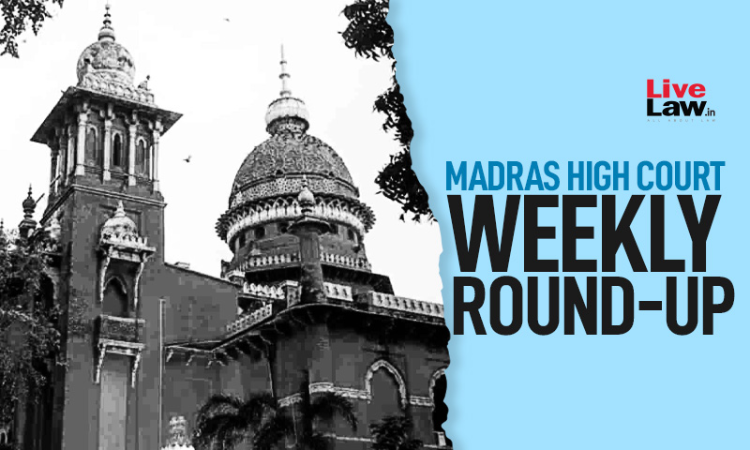Madras High Court Weekly Round-Up: 2022 LiveLaw (Mad) 71 - 2022 LiveLaw (Mad) 79
Sebin James
28 Feb 2022 12:54 PM IST

Next Story
28 Feb 2022 12:54 PM IST
A weekly round-up of important cases from Madras High Court and its subordinate courts.Citations: 2022 LiveLaw (Mad) 71 To 2022 LiveLaw (Mad) 79NOMINAL INDEXS. Gunaraja v. The Commissioner of Police, Greater Chennai & Anr., 2022 LiveLaw (Mad) 71Manimaran v. The Chief General Manager/ Reviewing Authority, Canara Bank & Ors, 2022 LiveLaw (Mad) 72Wasib Khan v. The State represented by...
